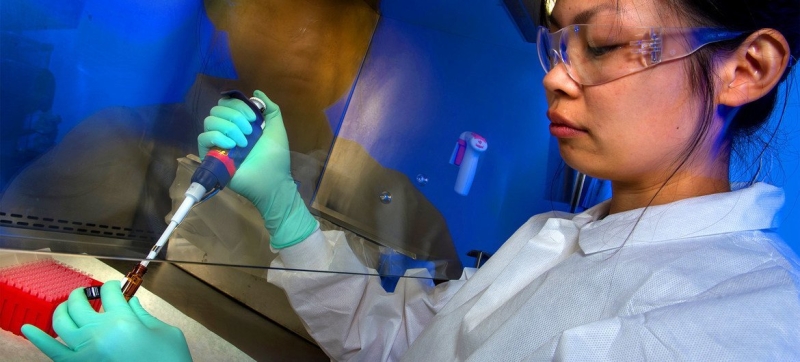
Globally, women make up only a third of all scientific researchers. The 2024 L’Oréal/UNESCO Women in Science Prize laureates have been announced Women
On 28 May at UNESCO headquarters in Paris, five women scientists will be awarded for their pioneering research in the life and environmental sciences and, in particular, for their major contributions to solving global health problems – from cancer to infectious diseases such as malaria and polio, and chronic diseases such as obesity, diabetes and epilepsy.
The L’Oreal/UNESCO International Prize for Women in Science is awarded annually for outstanding achievements by women scientists from five regions: Africa and the Arab States, Asia and the Pacific, Europe, Latin America and the Caribbean and North America. The 26th Prize winners were selected from among 350 candidates worldwide by an independent international jury.
Africa and the Arab States
Professor Rose Leke, former Head of the Department of Infectious Diseases and Immunology of the Faculty of Medicine and Biomedical Sciences and former Director of the Biotechnology Center of the University of Yaoundé, Cameroon, receives the award for her dedicated leadership, outstanding research and pioneering work to improve the effectiveness of treatment of malaria during pregnancy, support for polio eradication and improving immunization rates in Africa, and for his efforts to develop career opportunities for young scientists.
Dr. Leke’s work at the national, regional and global levels has had a profound impact on the state of the health care system in her native Cameroon and throughout Africa. Her accomplishments make her a role model, a leading educator, and an advocate for young women scientists.
Latin America and the Caribbean
Alicia Kowaltowski, professor of biochemistry at the University of São Paulo in Brazil, is being honored for her fundamental contributions to the biology of mitochondria, which are “the main source of energy in the cell.” , playing the role of a battery.” Her work is critical to understanding the impact of energy metabolism on chronic diseases, including obesity and diabetes, as well as aging. Her outstanding work as a researcher and mentor, as well as her contributions to the advancement of science and its popularization in Latin America, serves as an inspiration to young scientists.
North America
Nada Jabado, a professor in the Department of Pediatrics and Human Genetics at McGill University in Canada, is being honored for pioneering a revolutionary approach to understanding the genetic defects that cause aggressive childhood brain tumors. She made the unique discovery of the first histone mutations in human diseases, called oncohistones, leading to fundamental changes in the field of cancer research.
Through her innovative research and effective leadership in establishing a global network collaboration, she has changed the medical approach to childhood cancer and contributed to the development of both diagnostic capabilities and clinical treatments for young patients.
Asia and the Pacific
Professor Yan Ning is a professor at the School of Life Sciences at Tsinghua University, the founding president of the Shenzhen Medical Academy of Research and Translation, and the director of the Shenzhen Bay Laboratory. Ning was awarded the award for her discovery of the atomic structure of a variety of membrane proteins that mediate the movement of ions and sugars across the cell membrane, and the principles of movement between membranes.
Her outstanding research became the basis for the study of many diseases, such as epilepsy and arrhythmia, and the basis for the treatment of pain. A leading authority in her field, Dr. Yan inspires women scientists around the world and is a strong advocate for gender equality in research and science education.
Europe
Professor Genevieve Almouzni, Director of Research at the National Center for Scientific Research (CNRS) at the Institut Curie, France, is being awarded for fundamental contributions to the understanding of how DNA is packaged with proteins inside the cell nucleus. Her pioneering work in the field of epigenetics has expanded our understanding of how cell identity is determined during natural development and how it is disrupted in cancer. Her outstanding achievements in advancing research, training the next generation of scientists, and advancing women in science are nothing short of inspiring.
Women in Science
According to UNESCO, at the global level today, women still make up only a third of all researchers (33 percent). Moreover, the glass ceiling remains a reality: women currently hold only a quarter of scientific leadership positions in Europe. Since the establishment of the Nobel Prize in Natural Sciences in 1901, there have been only 25 women laureates.
For 26 years, the L’Oréal Foundation and UNESCO have worked together to promote gender equality in science through the International Prize for Women in Science and the Rising Talents program in more than 140 countries, highlighting women scientists and helping to break the glass barrier. ceiling” in science. Evidence of this is the significant increase (+150 percent) in the proportion of female Nobel Prize winners in natural sciences since 1998 compared to the previous period.
Since the inception of the L’Oréal program /UNESCO “For Women in Science” recognized the outstanding scientific achievements of more than 4,400 women scientists, including 132 international laureates and more than 4,000 young researchers. Seven of the laureates received the Nobel Prize in the field of natural sciences.
The advancement of women in science is a matter of justice and pragmatism, UNESCO notes. Women make up half the world’s population, and it will take all of human ingenuity to solve the complex challenges we face, be it environmental degradation, climate and biodiversity breakdown, pandemics, the technological divide or chronic poverty.
“It is gratifying to see that the number of Nobel Prize winners in the natural sciences is increasing among women. Since 1901, 25 women have been awarded this award, 15 of them since the creation of the L’Oréal/UNESCO Women in Science program in 1998,” said Lydia Brito, UNESCO Assistant Director-General for Natural Sciences.
